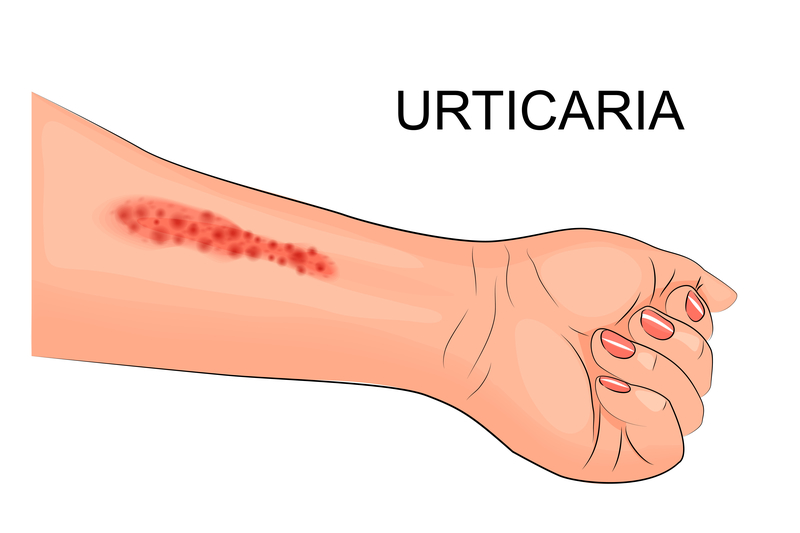
Urticaria: An Overview
Urticaria is the medical term for “Hives”. Hives are raised areas of the skin that itch intensely and are red with a pale center. Hives are a very common condition. About 20 percent of people have hives at some time during their lives. Are you aware about Risk Factors Of Urticaria?
Hives develop when there is a reaction that activates immune cells in the skin called mast cells. When activated, these cells release natural chemicals. One important chemical is histamine, which causes itching, redness, and swelling of the skin in an area. In most cases, hives appear suddenly and disappear within several hours.
Hives usually respond well to treatment, which includes medicines and avoiding whatever triggered the hives.
Hives are raised areas that itch intensely and are sometimes red with a pale centre. In some cases, the raised areas enlarge and merge together. Itching is usually the most bothersome symptom of hives, and it may be severe enough to interfere with work and sleep.
The most common signs of hives are:
Urticaria: Different Causes
An allergic reaction can trigger hives. Things that commonly trigger an allergic reaction include:
Other causes of hives are:
Hives can happen within minutes of exposure to the trigger or can have a delayed reaction of more than two hours.
Urticaria: Various Risk Factors
The risk of hives, either acute or chronic, increases due to any of the following:
Urticaria: Best Ayurvedic Treatment to cure Urticaria (Hives) Naturally
Urticaria is popularly known as Sheeta Pitta in Ayurveda. It is true that it isn’t a life threatening condition’ however, it affects one’s quality of life seriously. A few individuals tend to suffer from this condition for even years together.
Ayurvedic management involves avoiding of trigger factors and treatment of the root cause along with the symptoms. Ayurveda advises shodhana (Expelling treatment) followed by shamana (Suppressive treatment). Blend of mediicnal herbs such as Arogyavardhini Rasa, Giloye, Khadirarishta, Suthashekara Rasa, Aloe vera, Kamadhugarasa are proposed by specialists to treat urticaria completely.
Ayurvedic precautions & remedies for Risk Factors Of Urticaria?:
Avoid eating sweet food such as sugar, as it will make the itching worse.